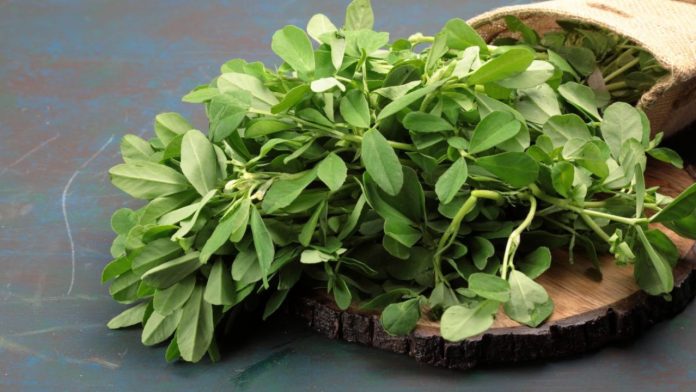The scent of aromatic, fresh fenugreek leaves fills the kitchen as winter draws near, adding to the allure of the season. Methi paratha is just one of the many recipes we prepare with this seasonal treat. A dough is formed by combining the finely chopped methi leaves with wheat flour, salt, spices, and a small amount of oil. The dough is then rolled out and cooked on a tawa till it becomes golden brown. A foodie’s dream, methi paratha is typically eaten with salad, raita, or chutney.
The primary component of methi paratha, fenugreek, has various health advantages:
1. High in soluble fiber: Fenugreek has a high soluble fiber content, which helps to maintain digestive health and stave off constipation.
2. Blood sugar regulation: By increasing insulin sensitivity and decreasing the rate at which sugars are absorbed, fenugreek may help control blood sugar levels.
3. Heart health: By assisting in the reduction of cholesterol, the fiber content can also support heart health.
4. Weight management: Fenugreek’s fiber, which increases feelings of fullness, has been shown to help with weight management.
5. Anti-inflammatory qualities: Fenugreek possesses anti-inflammatory qualities that could help with inflammatory illnesses and conditions including arthritis.
6. Support for breastfeeding: It is well known that fenugreek helps nursing moms produce more milk.
7. Antioxidant effects: The plant has antioxidants that help shield cells from harm and fight oxidative stress.
8. Assist with digestion: By creating a barrier on the lining of the stomach, fenugreek may help with indigestion and acid reflux.
9. Menstrual health: It is thought to assist in controlling menstrual cycles and easing PMS symptoms.
10. Better skin health: The anti-inflammatory and antioxidant qualities may help promote healthier skin.

 हिंदी
हिंदी






